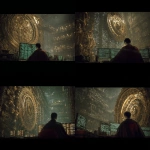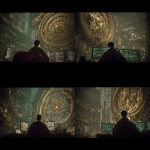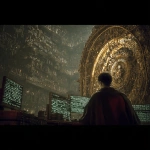Explore the Best AI Image Gallery
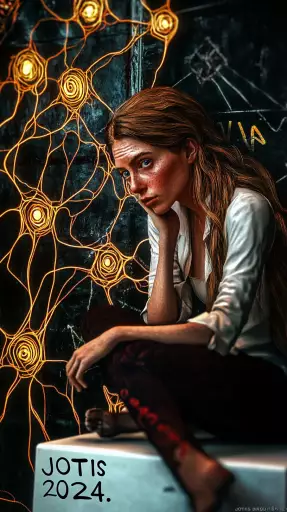
Blockchain in Finance: Unlocking Potential for the Creative Industry
The intersection of blockchain technology and finance has sparked a wave of innovation across various sectors, including the creative industry. This transformative convergence is poised to reshape how artists, designers, musicians, and other creatives manage their work, collaborate, and generate revenue.
Beyond its well-established role in cryptocurrencies, blockchain offers a decentralized, transparent, and secure platform for managing digital assets. In the context of the creative industry, this opens up a realm of possibilities for:
Secure Ownership and Copyright Protection
One of the most significant challenges facing creatives is ensuring ownership and protecting their intellectual property. Blockchains immutable ledger provides an unalterable record of creation and ownership, effectively preventing plagiarism and counterfeiting. Smart contracts, self-executing agreements embedded within the blockchain, can automate royalty payments to creators every time their work is used or sold.
New Revenue Streams and Direct Fan Engagement
Blockchain empowers creatives to connect directly with their audiences, bypassing traditional intermediaries like record labels or galleries. Non-fungible tokens (NFTs) represent unique digital assets, allowing artists to sell their creations as one-of-a-kind collectibles. This opens up new revenue streams and fosters a deeper connection between creators and fans.
Enhanced Collaboration and Transparency
Blockchain facilitates collaborative projects by enabling secure and transparent data sharing among participants. Imagine musicians seamlessly collaborating on a track from different locations, with each contribution recorded immutably on the blockchain. This transparency fosters trust and accountability within creative teams.
Micropayments and Content Monetization
The rise of microtransactions makes it possible for creators to monetize their content in smaller increments. Blockchain enables seamless micropayment systems, allowing audiences to support their favorite artists directly through small contributions.
Ethical Considerations and Future Trends
While the potential benefits are immense, blockchains integration into the creative industry also raises ethical considerations:
- Data Privacy: Blockchains transparency can be a double-edged sword. While it promotes accountability, it also raises concerns about the privacy of sensitive artist data.
- Accessibility and Inclusivity: Ensuring equitable access to blockchain technology and its benefits for all creatives, regardless of their technical expertise or resources, is crucial.
- Environmental Impact: The energy consumption associated with some blockchain networks requires careful consideration and exploration of more sustainable solutions.
Looking ahead, we can expect further advancements in:
- Interoperability between blockchains: Seamlessly connecting different blockchain platforms will foster a more integrated creative ecosystem.
- Decentralized Autonomous Organizations (DAOs): DAOs can empower creatives to collectively govern and manage their projects, fostering greater ownership and control.
- The metaverse and immersive experiences: Blockchain will play a vital role in creating secure and verifiable ownership of digital assets within immersive virtual worlds.
Blockchain technology is poised to revolutionize the creative industry by empowering artists, fostering collaboration, and unlocking new revenue streams. Addressing ethical considerations and embracing innovation will be key to shaping a future where blockchain technology truly unlocks the potential of creativity.

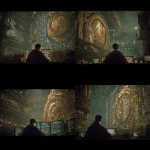
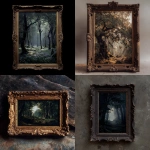
](https://images.ai-img.art/thumbnails/150/69daab74527edc292198788487e2d0d5f1bb1aba897d85b79ff4015ea305631d.webp)
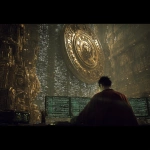


](https://images.ai-img.art/thumbnails/150/0d2c5ff24ca9024b95b5f0d1d0e673146e5dd5f31c7b3a7092322afe4a3c46eb.webp)



](https://images.ai-img.art/thumbnails/150/786d3898a4574da9c53e922bd2a30035084a90a9a6f5cc6bee514d0150ba3403.webp)

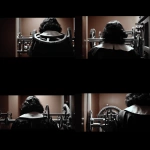












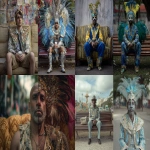
](https://images.ai-img.art/thumbnails/150/7889b264cc5c27f6b7a00af1767a689c9df2b49d36667764d8322ae0c0fed64a.webp)
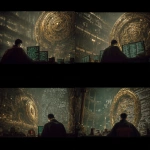



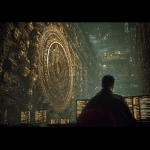

](https://images.ai-img.art/thumbnails/150/8fd5788e152269ccc7eeb4a5287499cc5f55ca46d75afc237030f50a1b60c6ca.webp)





](https://images.ai-img.art/thumbnails/150/24ccaad8968bce75611aa4ff739695d61b7d06bd128d44cfbb3a6c46be30ed33.webp)


